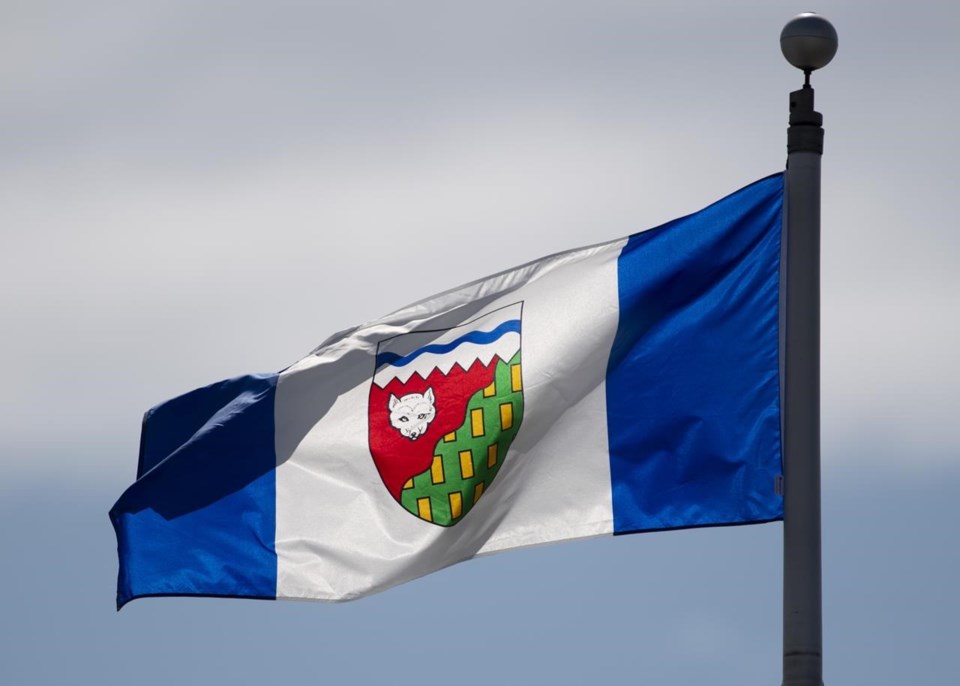YELLOWKNIFE — Hundreds of northerners were being airlifted from at least three communities in the face of wind-whipped wildfires as the Canadian Forces arrived in the Northwest Territories and ashes rained down on its capital city, where a state of local emergency has been declared.
"Over the past 24 hours or so there has been an airlift like this territory has never seen," N.W.T. fire information officer Mike Westwick said Monday.
"Planes flying out of Hay River, planes flying out of Fort Smith, planes flying out of Jean Marie River.
"The highways are compromised. It's a very serious situation."
Jane Groenewegen was helping a friend leave the hamlet of Enterprise just south of Hay River on Sunday evening when RCMP officers knocked on the door.
"They said, 'No, you have to evacuate immediately.' It was probably only 30 to 45 minutes after that when basically the entire town of Enterprise burned down," she said in a phone interview.
Groenewegen and her friend drove south to High Level, Alta., where Groenewegen owns a ranch.
"We got into a situation of thick, black smoke," she said. "It turned from daylight to pitch black with orange reflections on both sides of the highway. I had to hold a cloth over my face just to breathe."
RCMP reported at least 12 abandoned and damaged vehicles between Hay River and Enterprise.
"Reports of poor visibility due to heavy smoke on the roadway have been received and it is likely that this contributed to the vehicle collisions and vehicles becoming immobilized after leaving the roadway," said Cpl. Matt Halstead in a release.
"The officers stopped and checked each vehicle, and there was no indication that anyone was trapped or left behind. The risk of fire in this area prevented the officers from conducting further investigation."
On Monday morning, about 20 fellow evacuees were staying on Groenewegen's ranch, camping in tents or trailers. With fire damage to cell towers and fibre optic lines, it wasn't until mid-Monday morning that she spoke with her husband and learned he was safe.
No injuries have been reported and no one is believed missing.
Firefighters were in tough conditions battling against flames driven by winds gusting 60 to 70 kilometres an hour in some areas, said Westwick.
On Sunday, those winds pushed the flames through a firebreak and within 30 kilometres of the territorial capital of Yellowknife. The city is not considered threatened, but residents have been told to prepare to leave.
"The city is very smoky," Westwick said. "Yesterday, we saw dark clouds of smoke envelope the city. We saw falling ash. We do expect that to continue."
The city declared a state of local emergency during an emergency council meeting on Monday evening, saying in a tweet it will ensure the community "can exercise precautionary practices and acquire the equipment and resources needed to keep Yellowknife safe."
It said that could include taking over the use of vehicles or property to respond to the emergency, causing an evacuation for all or a portion of the community, or authorizing qualified people to provide services or aid in emergency responses.
Evacuations were ordered for areas north of Yellowknife and along Highway 3, which heads west.
On Sunday, winds drove the Kakisa fire within 25 kilometres of Hay River. Local officials reported all long-term care residents and hospital patients were transported to Yellowknife, and 215 people were flown to Grande Prairie, Alta.
Enterprise suffered significant damage. Damage was also reported on Northwestel fibre lines as well as some electrical lines.
"Communications have been challenged in a big way," said Westwick.
Firefighters were arriving from other jurisdictions, and four helicopters and water bombers were en route.
Meanwhile, members of the Canadian Forces have been deployed to help deal with the wildfires.
A National Defence spokeswoman said a reconnaissance team was on the ground in the community along the south shore of Great Slave Lake. She did not say how big the team was, nor what equipment or capabilities they were bringing with them.
By Tuesday, 124 soldiers are expected to be mobilized to the area. About 100 are to be engaged in mop-up and patrol operations when wildfires have been contained, with the remainder co-ordinating logistics. In the air, the Forces are to contribute a helicopter and a Twin Otter airplane.
The military deployment is set to last until Aug. 29.
"The mobilization of the Canadian Armed Forces will ease the stress on the territory’s resources and allow the (territory) to continue to provide essential services to evacuees during this unprecedented wildfire season," N.W.T. Premier Caroline Cochrane said in a press release.
This report by The Canadian Press was first published Aug. 14, 2023.
— By Bob Weber in Edmonton with files from Brittany Hobson in Winnipeg
The Canadian Press
Note to readers: This is a corrected story. A previous version said Jane Groenewegan and her friend drove to High River.

